Ecosystems: Interactions, Energy, and Dynamics

Educators and Parents, Sign Up for The Cheat Sheet
Weekly updates to help you use Science News Explores in the learning environment
Thank you for signing up!
There was a problem signing you up.
-
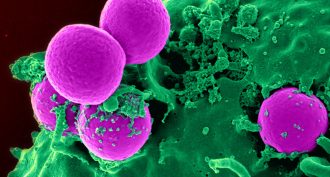 Microbes
MicrobesStaph infections? The nose knows how to fight them
Bacteria living in some people’s noses make a compound that could help fight a nasty type of infection that laughs at other antibiotics.
By Eva Emerson -
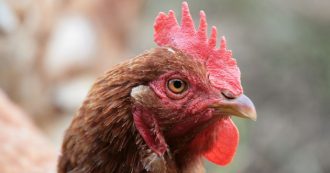 Health & Medicine
Health & MedicineWill chicken cologne guard you from malaria?
Mosquitoes that carry malaria are repelled by the smell of chickens. In malaria country, that could make these birds a human’s best friend.
-
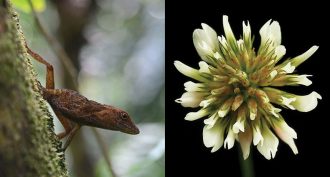 Life
LifePlants, animals adapt to city living
Cities have turned into experiments in evolution for both plants and animals, from the taste of clover to the stickiness of lizards’ toes.
By Susan Milius -
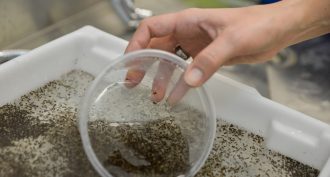 Genetics
GeneticsGM mosquitoes cut rate of viral disease in Brazil
Adults males carrying the altered gene cannot father young that survive to adulthood. That’s when they suck blood — and can transmit disease.
By Susan Milius -
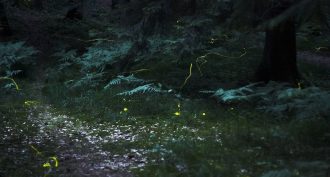 Animals
AnimalsScientists Say: Crepuscular
Day creatures are diurnal. Night creatures are nocturnal. Animals active at twilight get a special name.
-
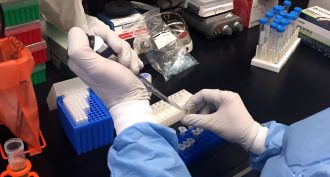 Health & Medicine
Health & MedicineU.S. mosquitoes now spreading Zika virus
Scientists had worried that if people sick with Zika came to America, local mosquitoes might bite them and spread the disease. That’s now happened.
By Meghan Rosen -
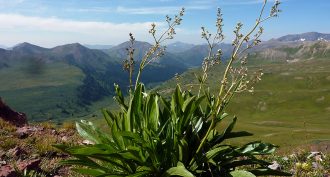 Plants
PlantsClimate closing the gender gap for this mountain flower
Among valerian plants, males like it hotter than the females do. So a warming climate has been speeding their migration up once-cool mountainsides.
-
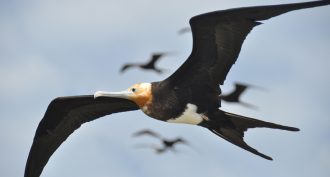 Animals
AnimalsFrigate birds spend months without landing
Frigate birds can fly non-stop for months. They stay in the air with the help of upward-moving airflows, a new study finds.
-
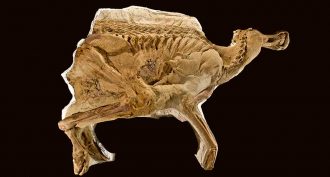 Fossils
FossilsParasites wormed their way into dino’s gut
Tiny burrows crisscross the stomach of a 77-million-year-old dinosaur fossil. These may be tracks left behind by slimy parasitic worms.
By Meghan Rosen -
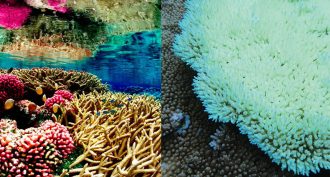 Animals
AnimalsCurrent coral bleaching event is the longest known
Heat stress has led to the longest coral bleaching event on record. Scientists now worry that global warming may make such prolonged crises more frequent.
-
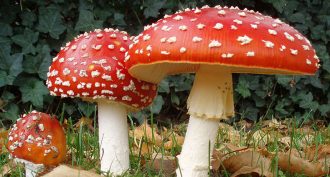 Environment
EnvironmentScientists Say: Poisonous
A poison-arrow frog is poisonous, but a rattlesnake is not. What’s the difference? It’s how the poison is delivered.
-
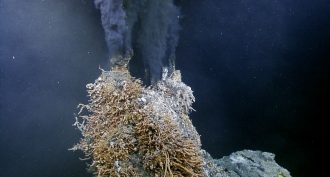 Oceans
OceansSeafloor hosts surprising number of deep-sea vents
A new sensor detects changes in seawater chemistry and finds far more ecosystem-supporting seafloor vents than scientists had believed were out there.